A&C: AO5 (Modern productions)
1/10
There's no tags or description
Looks like no tags are added yet.
Name | Mastery | Learn | Test | Matching | Spaced |
|---|
No study sessions yet.
11 Terms
names of directors + year
Iqbal Kahn’s 2017 Production
Blanche McIntyre’s 2024 BSL Production
Michael Boyd’s 2010 Production
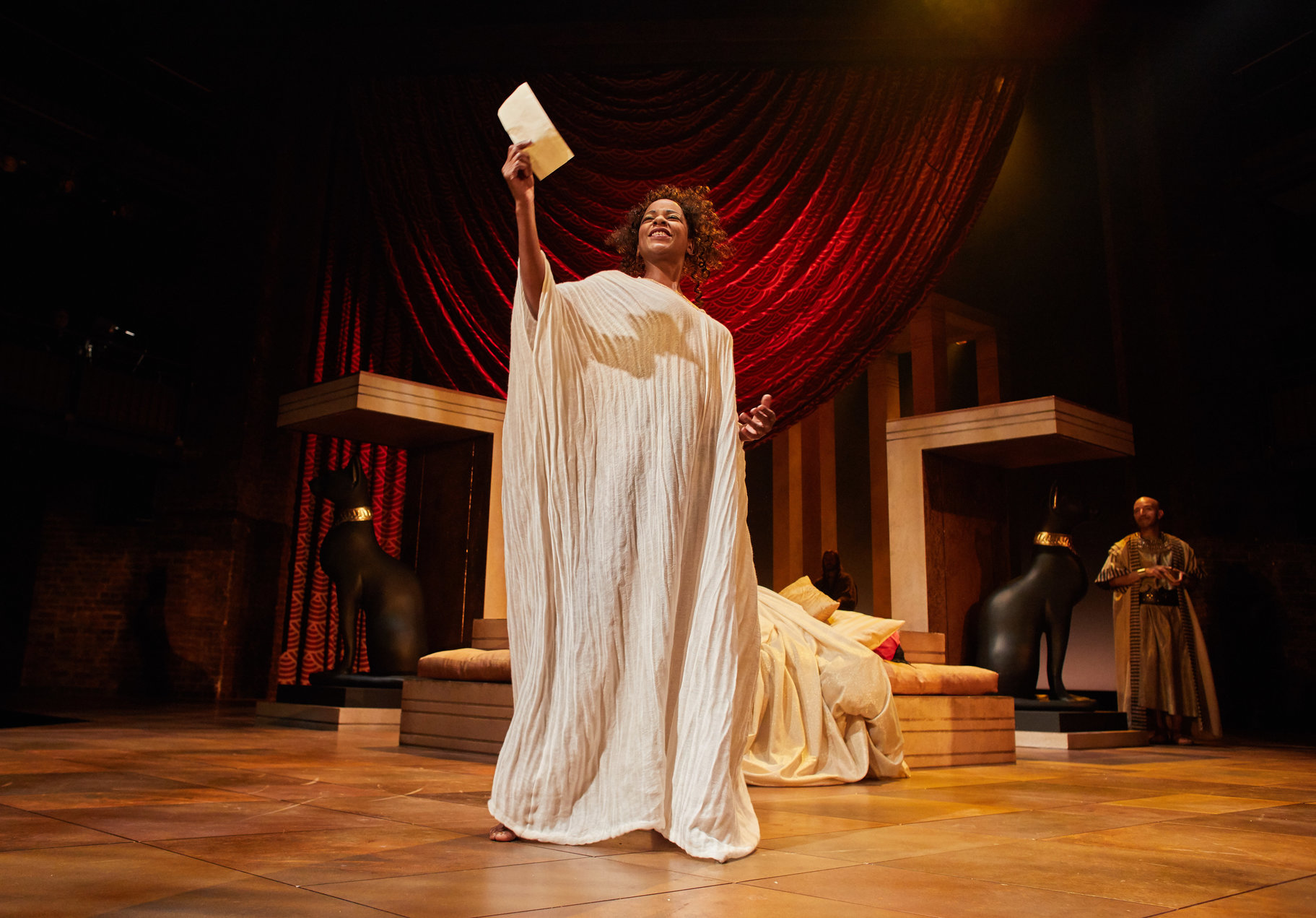
IK’s Cleo
(Whatsonstage, Michael Davies)
'deliver[s] some of Shakespeare's most forceful female lines in a curious, unplaceable accent'
'before having to strip entirely and spuriously naked in her final moments'
(Guardian, Kate Kellaway)
'Josette Simon is a Cleopatra to die for…an extraordinarily physical performance'
'when she imitates Caesar, she puts on an affected baby voice'
'The fascinating sense Simon gives is of underlying insecurity, as though Cleopatra is shuffling selves.'
'She is a queen and a jester'
'Cleopatra's [death] is beautiful as she strips to nothing and is then dressed in royal trappings.'
'This is death as coronation - as crowning glory.'
(Daily Mail, Patrick Marmion)
'Josette Simon's histrionic Queen of the Nile epitomises Kahn's deluxe production.'
'Long, languid Simon plays fast and louche with the language, but this is an amusing study of boredom, caprice and petulance.'
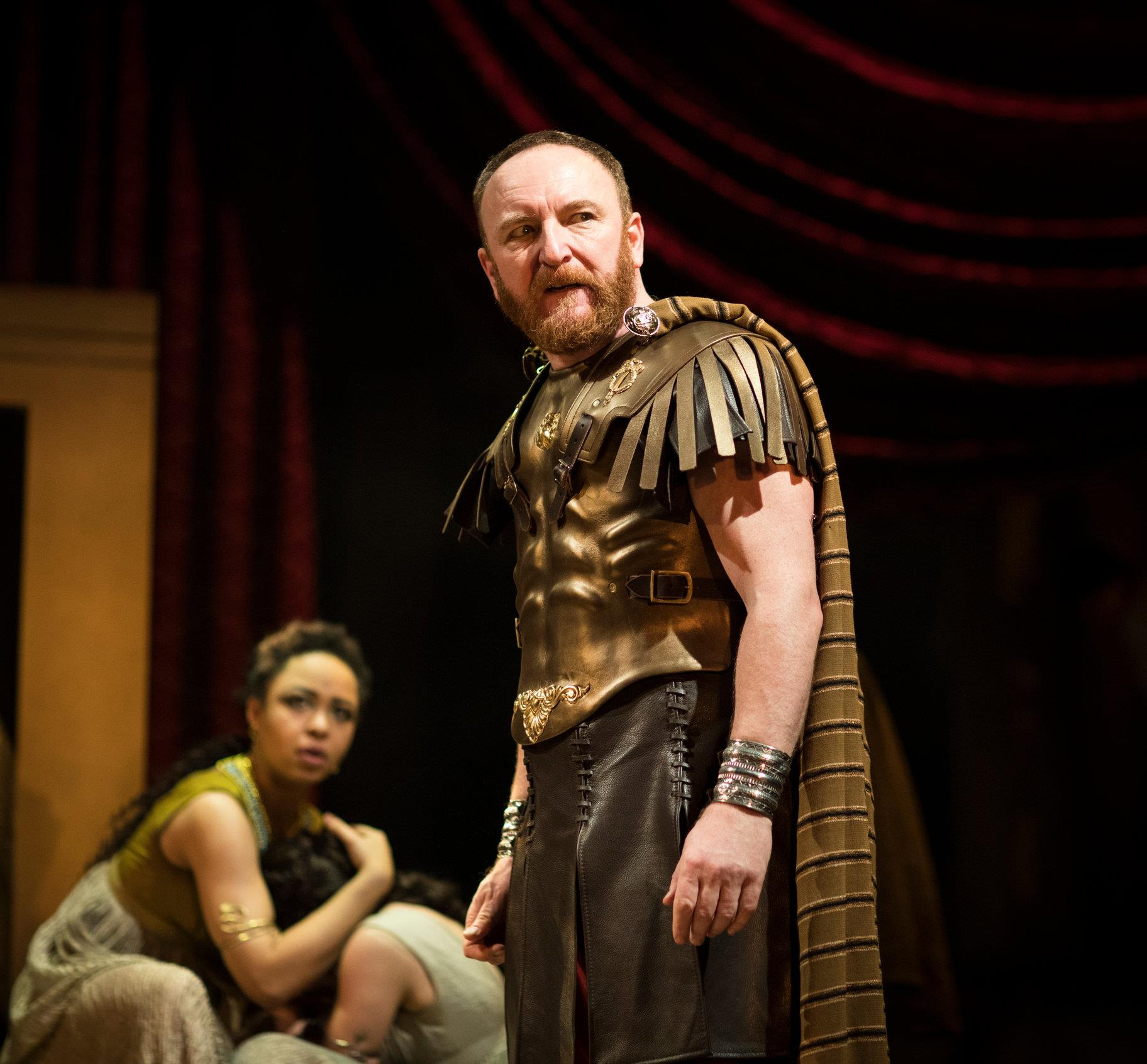
IK’s Antony
'Antony Byrne is the alpha male we've been looking for' (Daily Mail, Patrick Marmion)
(Whatsonstage, Michael Davies)
'a bloke-ish, bravado-laced performance from Antony Byrne as Mark Antony' 'torn between the dutiful soldier and the lovelorn man'
(Guardian, Kate Kellaway)
'an ordinary, erring, henpecked bloke'
'but when he leaves Cleopatra, promising to be a 'man of steel', he sounds, movingly, like a man of flesh'
'seldom witnessed a more horribly realistic death on stage'
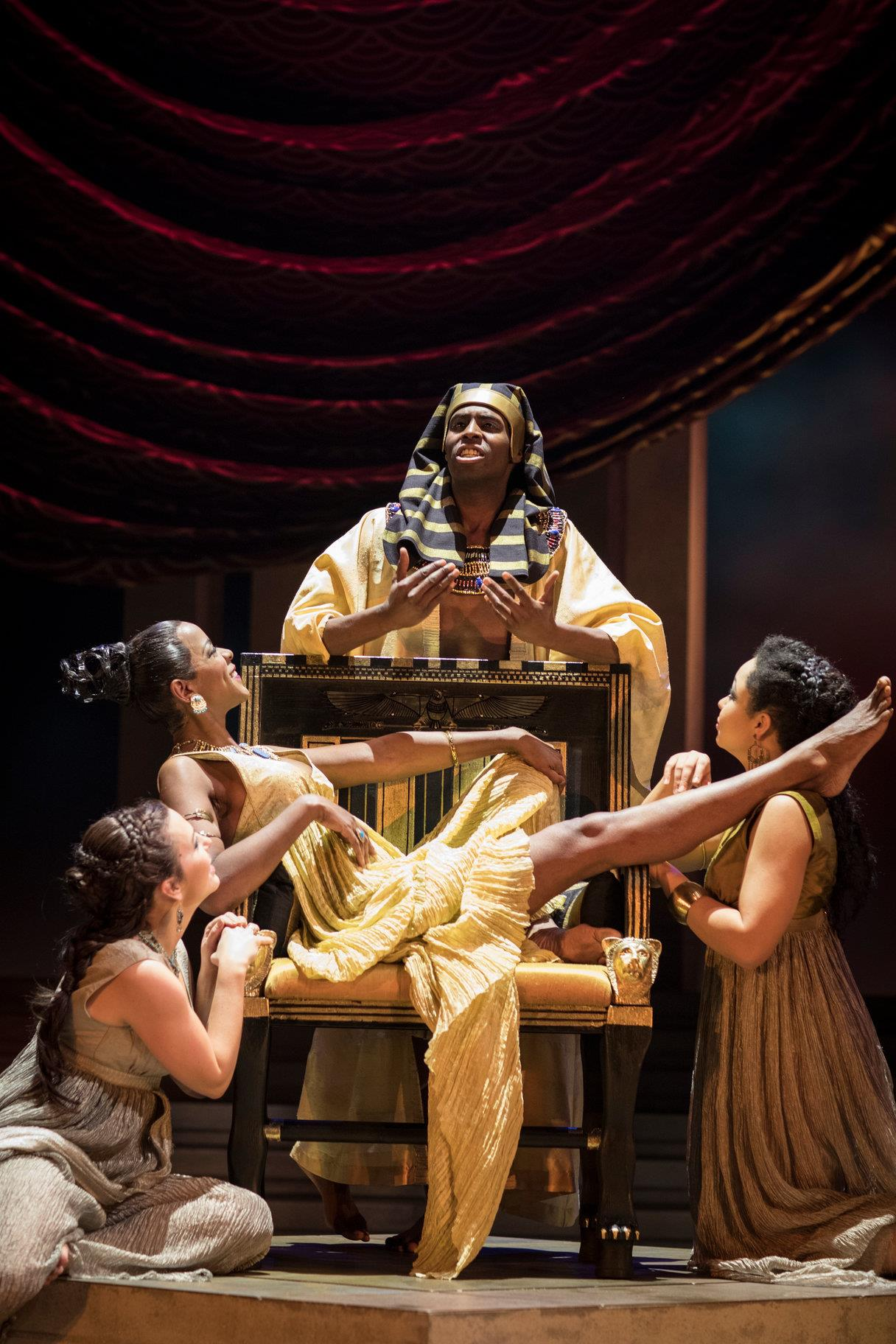
IK’s staging/stagecraft
(Whatsonstage, Michael Davies)
'Magnificent set by Robert Innes Hopkins, lit beautifully by Tim Mitchell'
'a stylish, exotic score by RSC debutant composer Laura Mvula'
'the crucial sea-battle in which Antony abandons his post to chase after his Cleopatra played out with oversized model boats' 'more comical than strategic'
'clever and dynamic set'
(Daily Mail, Patrick Marmion)
'It's a lavish production - aided by Laura Mvula's seductive score, which weaves in rolling drums, reedy squeals, erotic twangs and shimmering gongs.'
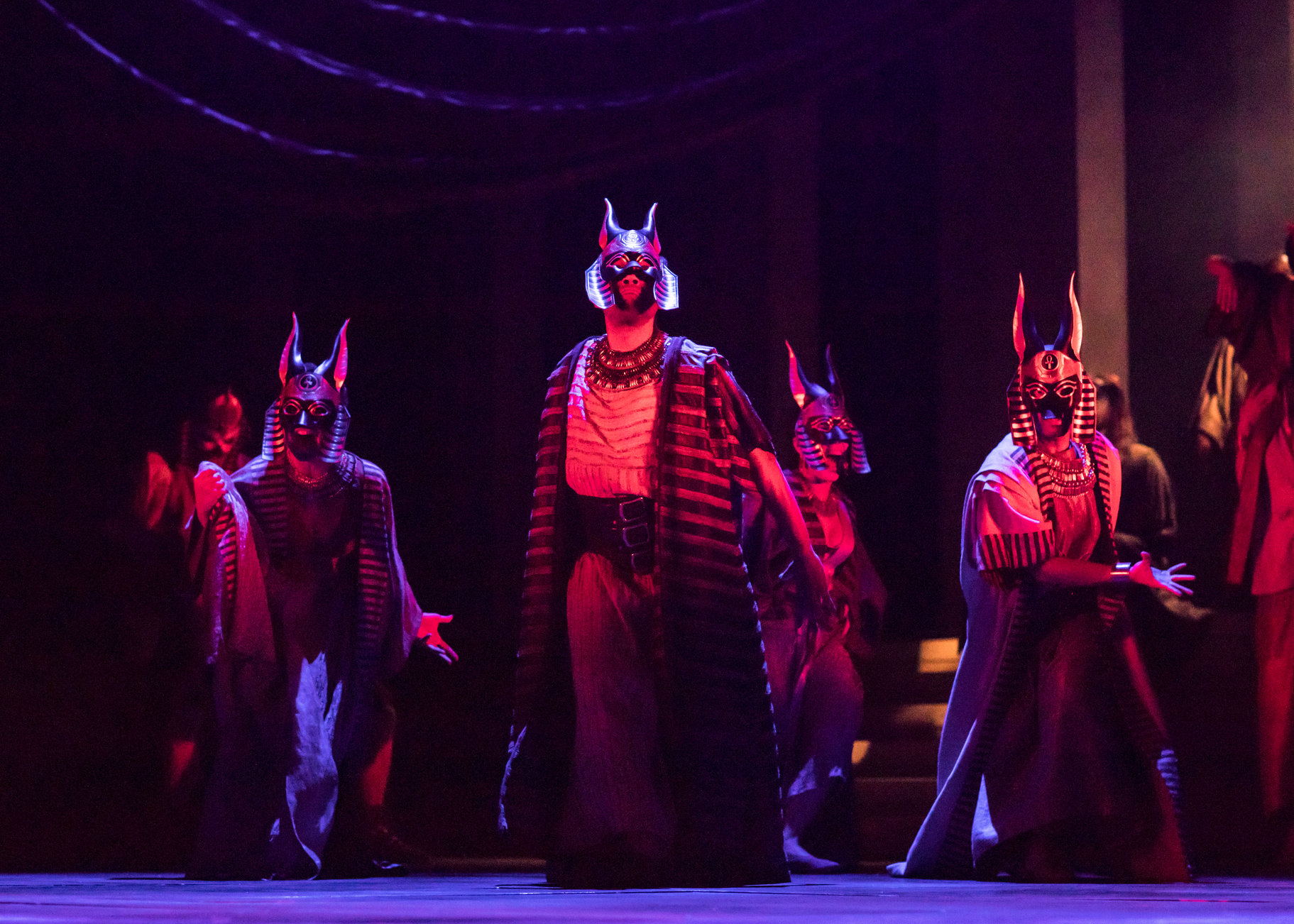
general IK
Cleopatra is African (challenging earlier Orientalist portrayals of her as merely exotic/seductive)
The Egyptian court scenes were highly stylised, filled with music, dance and ritual - emphasising the difference in lifestyle between Rome
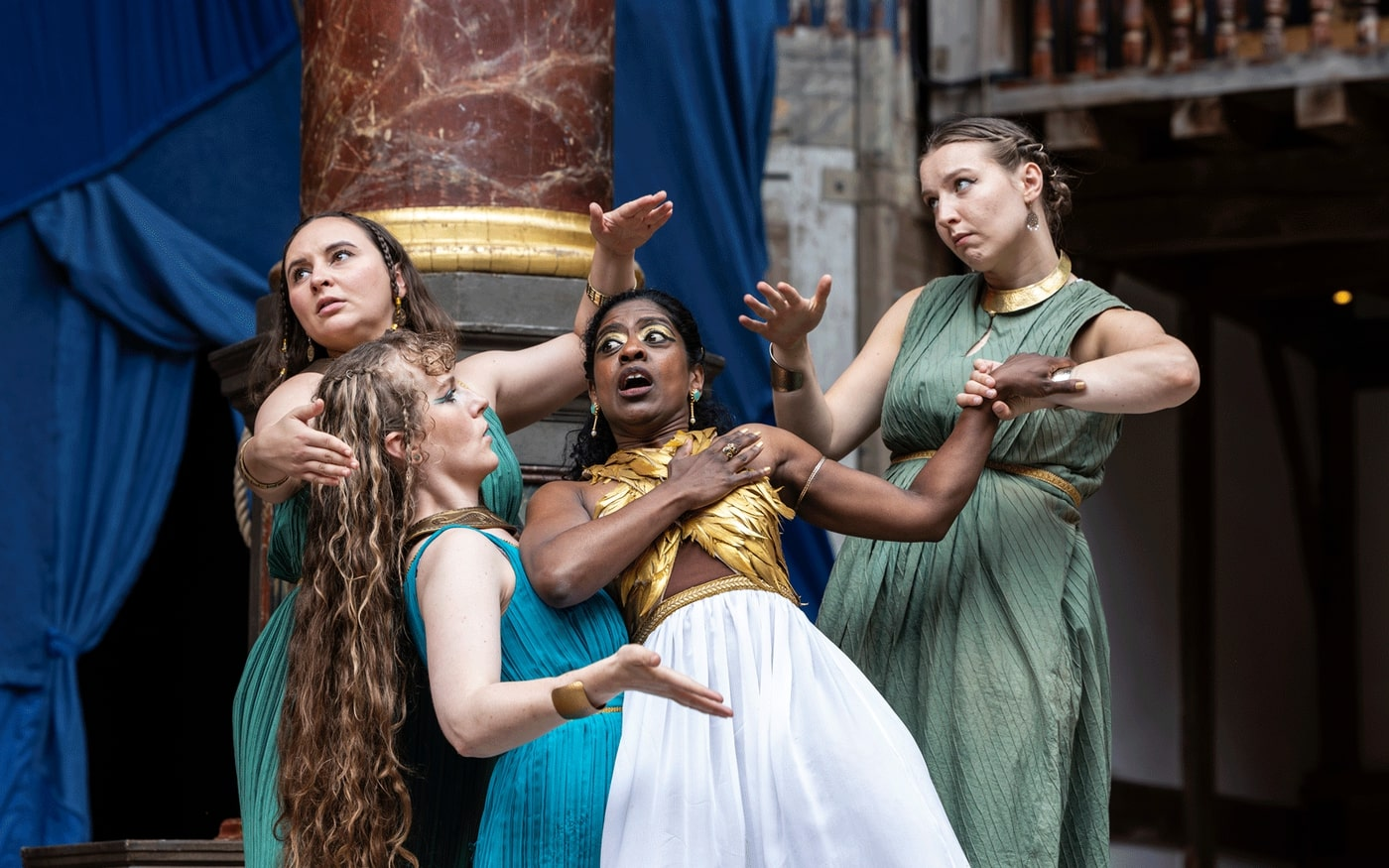
BM’s Cleopatra
(The Guardian, Kate Wyver)
'a regal Cleopatra'
Obsessive and quick to temper, she is rash and romantic
Their intimacy is most apparent when Antony shakes loose his rigid arrogance and signs to Cleopatra what he would yell at anyone else
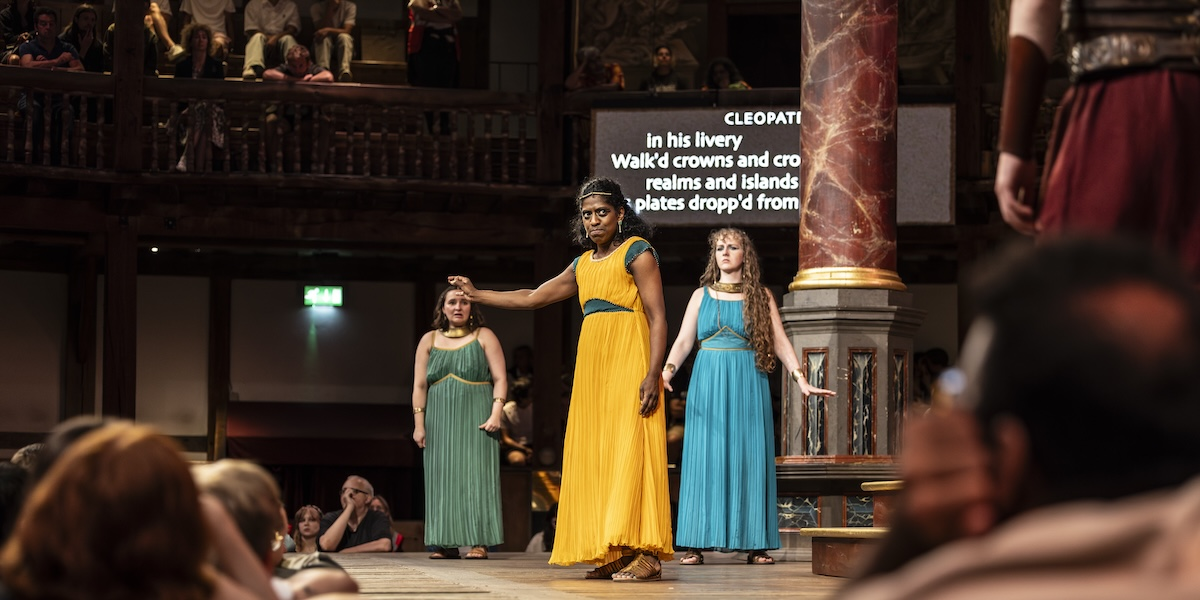
BM’s staging/stagecraft
(The Guardian, Kate Wyver)
All heavy drums and the slow-mo clashing of swords, these scenes hold less energy than the more domestic moments in court
This production belongs to the women
[Captions] appear on screens around the wooden O. Far from being distracting, they offer a strong case for such visual aids becoming a permanent fixture in the theatre.
(Financial Times, Sarah Hemming)
When characters die, their words on the screen crumble and drift away
(London Theatre, Julia Rank)
The nuanced captions… …feature different fonts for the Romans and Egyptians
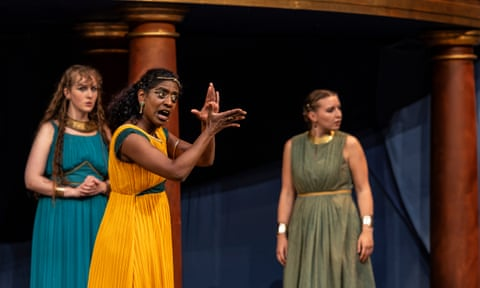
general BM from critics
(The Guardian, Kate Wyver)
'The Egyptian queen's court communicates in sign language in Blanche McIntyre's production, giving physical shape and frequently extra depth to the text.'
The Romans perform in spoken English
Subtitles appear on screens
Giving physical shape to Shakespeare's language offers an additional way in to his storytelling, not only making the text more accessible but frequently lending clarity to character and further depth to description.
Entendres are doubled with the layering of BSL over spoken English too; when a messenger (a sparkling Nadeem Islam) reports to the jealous queen that Mark Antony’s new wife’s hair is brown, he performs the action of squeezing out a particularly stubborn poo.
(Financial Times, Sarah Hemming)
'military-minded, rational Rome is a place of starchy formality' vs Egypt's 'lyrical physicality' 'mercurial, sensual, imperious queen'
Find yourself reading the subtitles a lot, at the expense of experiencing the performances fully
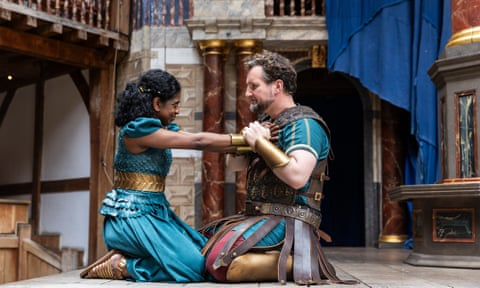
general BM
Language as a cultural division: vivid physical representation of cultural and political divide between the two empires
Use of BSL adds intimacy and enhanced inclusivty, but some critics pointed out it posed challenges for audience engagement - the necessity of reading subtitles
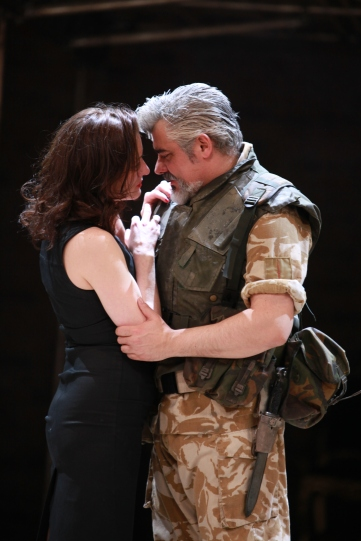
general MB
Modern dress and staging
Roman characters in military uniform and suits
Flowing, organic styles in Egypt
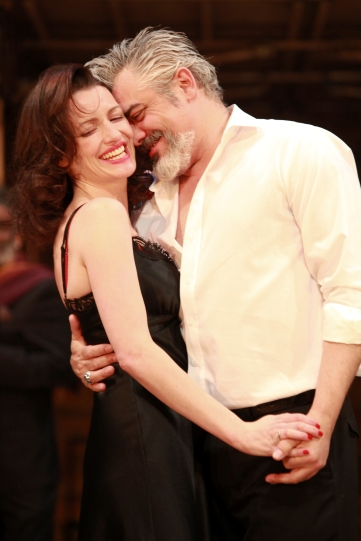
staging, lighting and costume in MB
Staging
Relatively bare stage to transform quickly between Egypt and Rome (allows rapid scene changes and presents the instability of the world the characters inhabit)
Lighting
Warm, rich lighting for Egypt (opulence, sensuality, mystery) versus cold, harsh lighting for Rome (stark, white or blue lighting) (austerity, discipline) - helps contrast the two worlds
Costume
Roman costumes were structured, uniform-like costumes in dark, sober colours - political rigidity, duty and masculinity. Demonstrates their roles as military and bureaucratic figures
Flowing robes, luxury, charisma, flamboyant clothing for Cleopatra
Antony’s changes to looser styles in relation to his crumbling Roman values